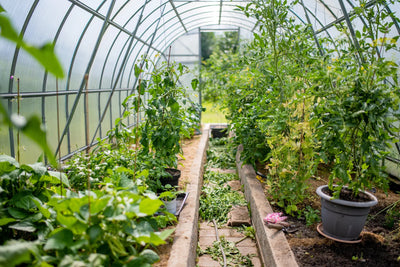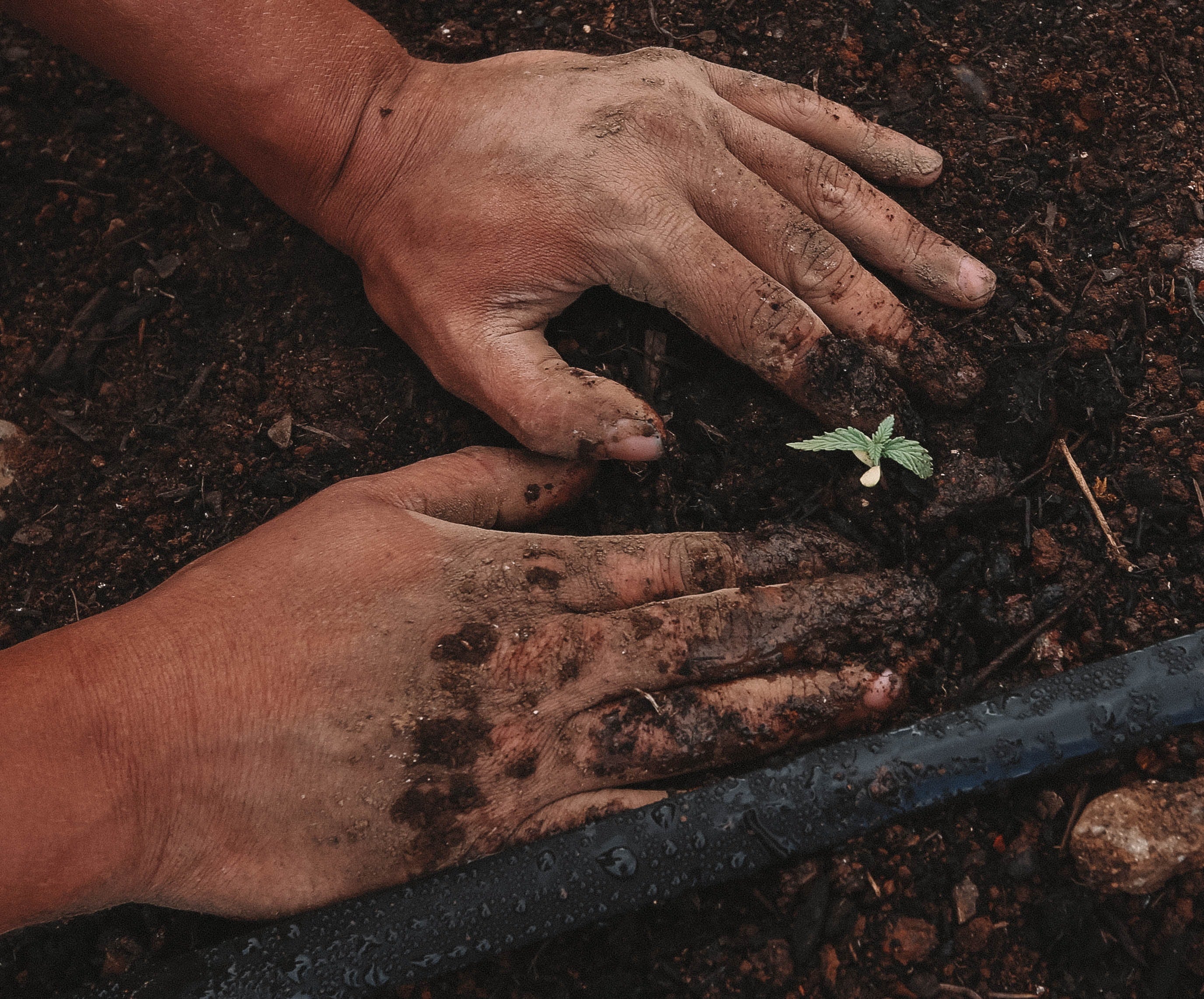Winter gardening is an excellent way to ensure your pantry stays stocked with fresh, nutritious produce during the colder months. Root vegetables, in particular, are perfect for winter storage because they are hardy, nutrient-dense, and relatively easy to grow. Whether you’re an experienced survival gardener or a beginner, this guide will help you master the art of growing and storing root vegetables for winter gardening success.
Why Root Vegetables Are Ideal for Winter Gardening
Root vegetables like carrots, beets, potatoes, and turnips are the backbone of winter gardening. Not only are they versatile in the kitchen, but they also store exceptionally well, lasting for months when handled properly. These vegetables thrive in cooler weather, making them an ideal choice for anyone looking to extend their gardening season into fall and beyond.
Winter gardening with root vegetables also offers self-sufficiency, as these crops require minimal maintenance and can survive light frosts. A great combination of food storage and saving for colder seasons is canning root vegetables.
Choosing the Best Root Vegetables for Winter Storage
Not all root vegetables are equally suited for winter gardening and storage. Here are some top choices to grow:
- Carrots: Sweet, crunchy, and ideal for winter storage, carrots are a staple.
- Beets: These nutrient-rich roots are hardy and store well for months in cool conditions.
- Parsnips: Known for their sweet flavor, parsnips thrive in cold weather and are a favorite.
- Turnips and Rutabagas: Quick-growing and versatile, these vegetables are excellent additions to soups and stews.
- Potatoes: A survival gardening essential, potatoes are easy to grow and store for long periods.
All of these root vegetable examples are sold here, at Seed Armory! Browse our selection of root vegetables as well as many, many more. We offer 100% heirloom, non-GMO organic seeds.
Preparing Your Garden for Winter Gardening Success
Pick the Perfect Location
Winter gardening requires careful planning to ensure your crops thrive. Choose a sunny location with loose, well-draining soil to allow root vegetables to grow deep and strong.
Amend Your Soil for Optimal Growth
Healthy soil is the foundation of winter gardening success. Root vegetables thrive in nutrient-rich soil, so adding organic matter and amendments is essential. Compost, aged manure, and balanced fertilizers can dramatically improve your harvest.
Pro Tip: Check out Seed Armory’s Soil Amendments Collection to optimize your soil health. Their products ensure your root vegetables are packed with flavor and nutrients while enhancing your winter gardening efforts.
Test and Balance Soil pH
For root vegetables, the ideal soil pH is between 6.0 and 7.0. Use a soil testing kit to check your garden’s pH and adjust it with lime or sulfur if necessary. Proper pH levels are crucial for a successful winter gardening harvest.

Planting Root Vegetables for Winter Gardening
Time Your Planting for Winter Storage
Timing is everything in winter gardening. Most root vegetables need 60–120 days to mature, so plan to sow seeds in late summer or early fall to ensure a robust winter harvest.
Plant with Precision
Sow seeds about 1/4 to 1/2 inch deep and space them 1–2 inches apart in rows. Proper spacing is crucial in winter gardening, as overcrowded plants can lead to stunted roots and poor storage potential.
Water Consistently
Root vegetables in winter gardening require steady moisture. Water deeply to encourage strong root growth, but avoid overwatering, as it can lead to rot.
Harvesting Root Vegetables for Winter Storage
Know When to Harvest
In winter gardening, the timing of your harvest can significantly impact storage. Most root vegetables are ready to harvest when their tops begin to yellow or after the first frost, which often enhances their sweetness.
Harvest with Care
Use a garden fork to loosen the soil around your root vegetables gently. Pull them up carefully to avoid bruising or cutting, as damaged vegetables don’t store well.
Storing Root Vegetables for Winter Gardening
Prepping for Storage
For winter gardening enthusiasts, proper storage starts with cleaning. Brush off excess dirt but avoid washing your vegetables, as added moisture can lead to rot. Cure vegetables like potatoes and sweet potatoes for 1–2 weeks in a warm, humid environment to toughen their skins.

Creating the Ideal Storage Environment
Root vegetables thrive in cool, dark, and humid conditions, making them perfect for winter storage. Aim for a temperature of 32–40°F with 85–95% humidity, according to homesteadfamily.com. Root cellars, basements, or even insulated garage spaces are ideal for winter gardening storage solutions.
Tip: Store carrots and beets in sand or sawdust to retain their moisture and prevent shriveling.
Inspect and Maintain
Check stored vegetables regularly for signs of spoilage and remove any that are rotting to prevent spreading. Successful winter gardening requires consistent monitoring of your stored crops.
Canning Root Vegetables for Long-Term Preservation
Canning root vegetables is an excellent way to preserve your harvest and extend your pantry's supply through winter and beyond. While root vegetables are already a staple in winter gardening and storage, canning offers an alternative method to enjoy them in soups, stews, or as stand-alone sides without relying solely on fresh storage.
Why Can Root Vegetables?
Canning root vegetables allows you to:
- Extend Shelf Life: Properly canned vegetables can last for up to a year or more.
- Save Space: Canning reduces the need for large storage areas like root cellars.
- Convenient Use: Pre-cooked and canned vegetables are ready to use in recipes, saving time in the kitchen.
Tips for Winter Gardening Success
- Crop Rotation: Avoid planting root vegetables in the same spot each year to reduce pests and diseases.
- Frost Protection: Use straw or frost blankets to shield your crops from unexpected hard frosts.
- Companion Planting: Pair root vegetables with garlic or onions to deter pests naturally and enhance your winter gardening ecosystem.
Boost Your Winter Gardening with Quality Soil
Soil health is the cornerstone of winter gardening success. Nutrient-rich soil supports the growth of strong, flavorful root vegetables and protects them from pests and diseases.
Elevate Your Gardening Game: Seed Armory’s Soil Amendments Collection offers premium solutions to ensure your soil is packed with the nutrients your crops need. From organic compost to tailored mineral blends, their products are perfect for maximizing your winter gardening harvest.
Reap the Rewards of Winter Gardening
Winter gardening is a fulfilling way to keep your pantry stocked with fresh, homegrown produce. Root vegetables are an excellent choice for this season because of their hardiness, nutritional value, and long-term storage potential. By following the steps in this guide, you’ll be well on your way to mastering winter gardening and enjoying the fruits (and vegetables!) of your labor all year long.
Don’t wait—start planning your gardening adventure today! Grab some seeds, enrich your soil, and prepare for a bountiful harvest that will keep you fed through the cold months.











